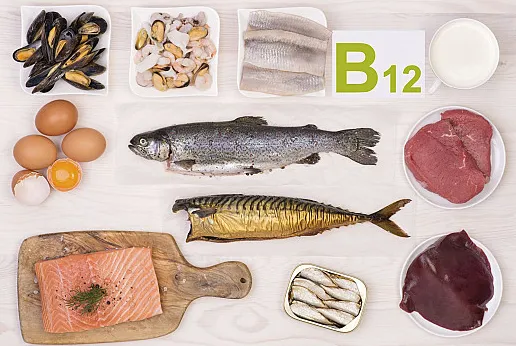The Mediterranean Diet: A Journey to Better Health and Flavorful Living

The Mediterranean diet has long been lauded as one of the healthiest dietary patterns worldwide. Rooted in the traditional eating habits of countries bordering the Mediterranean Sea, such as Greece, Italy, and Spain, this diet emphasizes the consumption of whole foods like fruits, vegetables, nuts, seeds, legumes, whole grains, olive oil, and moderate amounts of fish and poultry. What sets the Mediterranean diet apart is not just its diverse range of delicious flavors but also its profound impact on health.
Health Benefits
The Mediterranean diet is packed with antioxidants, healthy fats, and fiber, which contribute to its numerous health benefits. One of the most well-known advantages of this eating pattern is its positive effect on heart health. Research has shown that adhering to the Mediterranean diet can reduce the risk of heart disease by lowering levels of LDL (bad) cholesterol and increasing HDL (good) cholesterol. The diet's emphasis on healthy fats, particularly from olive oil, has been linked to improved cardiovascular health and reduced inflammation.
Another key benefit of the Mediterranean diet is its ability to support weight management. The diet's focus on whole foods, such as fruits, vegetables, and whole grains, helps regulate blood sugar levels, reducing the risk of obesity and Type 2 diabetes. Furthermore, the moderate intake of protein, primarily from plant-based sources like legumes and fish, helps build lean muscle and maintain a healthy metabolism.
The Mediterranean diet is also known for its brain-boosting properties. Studies suggest that it may help prevent cognitive decline, reduce the risk of Alzheimer's disease, and improve memory function. The combination of anti-inflammatory foods, omega-3 fatty acids from fish, and antioxidants from fruits and vegetables may protect brain health and improve mental clarity.
Beyond the body, the Mediterranean diet has also been linked to a positive impact on mental well-being. Many individuals following this diet report lower levels of stress and anxiety, as well as improved mood and overall quality of life.
Culinary Richness
What makes the Mediterranean diet so enjoyable is its vast array of flavors and ingredients. Olive oil is a central component, offering a rich, fruity flavor to dishes. It’s often used in dressings, marinades, and for cooking, replacing less healthy fats like butter or margarine. Fresh herbs such as basil, oregano, rosemary, and thyme add depth and fragrance to Mediterranean meals, while garlic and onions enhance the overall taste profile.
The diet’s emphasis on fresh produce ensures that meals are packed with a variety of flavors, textures, and colors. Whether it’s the sweetness of tomatoes, the tartness of citrus, or the creaminess of Greek yogurt, every meal is a burst of vibrant tastes. Whole grains like farro, quinoa, and couscous add a hearty touch to dishes, while legumes like lentils, chickpeas, and beans provide plant-based protein and fiber.
Fish and seafood also play a starring role in the Mediterranean diet. Rich in omega-3 fatty acids, fish such as salmon, sardines, and mackerel are enjoyed regularly in the diet, providing health benefits alongside their delicate flavors. A Mediterranean meal might include grilled fish, a side of roasted vegetables, and a fresh salad drizzled with olive oil—simple, healthy, and satisfying.
Companies and Resources for Mediterranean Diet
If you're interested in exploring the Mediterranean diet further, here are some trusted resources and companies that can help you dive into this healthy and flavorful eating pattern:
1. [Mediterranean Diet Foundation](https://www.mediterranean diet.gr)
2. [Oldways](https://oldwayspt.org/)
3. [The Mediterranean Dish](https://www.themediterraneandish.com)
4. [Mediterranean Living](https://www.mediterraneanliving.com)
5. [Heart and Stroke Foundation](https://www.heartandstroke.ca)
6. [Nutrition.org](https://www.nutrition.org)
7. [Blue Zones](https://www.bluezones.com)
8. [Mayo Clinic](https://www.mayoclinic.org)
9. [Cooking Light](https://www.cookinglight.com)
10. [Olive Oil Times](https://www.oliveoiltimes.com)
HTML Comparison Table
Here is a comparison of various components of the Mediterranean diet:
<table border="1" cellpadding="10">
<tr style="background-color: #f2f2f2;">
<th>Component</th>
<th>Health Benefits</th>
<th>Foods Included</th>
<th>Frequency of Consumption</th>
</tr>
<tr>
<td>Olive Oil</td>
<td>Rich in antioxidants and healthy fats, promotes heart health</td>
<td>Olive oil as a primary fat source</td>
<td>Daily</td>
</tr>
<tr>
<td>Fruits & Vegetables</td>
<td>High in vitamins, minerals, and antioxidants, supports immune function</td>
<td>Tomatoes, greens, citrus fruits, berries</td>
<td>Daily</td>
</tr>
<tr>
<td>Fish & Seafood</td>
<td>High in omega-3 fatty acids, supports heart and brain health</td>
<td>Salmon, sardines, mackerel</td>
<td>Several times per week</td>
</tr>
<tr>
<td>Whole Grains</td>
<td>High in fiber, supports digestive health and weight management</td>
<td>Farro, quinoa, whole wheat bread</td>
<td>Daily</td>
</tr>
<tr>
<td>Legumes</td>
<td>High in plant-based protein and fiber, regulates blood sugar levels</td>
<td>Lentils, chickpeas, beans</td>
<td>Several times per week</td>
</tr>
<tr>
<td>Nuts & Seeds</td>
<td>Rich in healthy fats and fiber, supports heart and brain health</td>
<td>Almonds, walnuts, chia seeds</td>
<td>Several times per week</td>
</tr>
</table>






